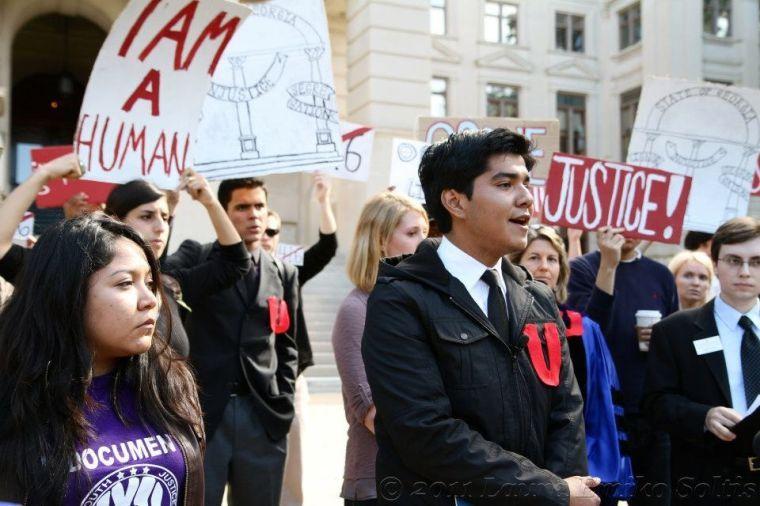In response to legislation that barred undocumented immigrants from attending universities in Georgia, prominent educators from around the country have come together to establish Freedom University.
Freedom University was founded in 2011 by five professors at the University of Georgia who were appalled with legislation which banned immigrants without documentation from attending a public institution.
Since then its faculty has expanded drastically and includes prominent educators such as the Pulitzer Prize winning author Junot Diaz, a creative writing professor at the Massachusetts Institute of Technology; Silvia Marina Arrom, a professor of history at Brandeis University; and Mark Overmyer-Velázquez, an associate professor of history and director of Latin American and Caribbean Studies of the University of Connecticut. The program includes a list of other distinguished faculty members.
These faculty members volunteer their time and work to provide a quality education to those who have been denied the ability to get one by traditional means. Freedom University’s teaching practices also vary slightly from those of a regular university.
For example, it offers four classes with anywhere from 35 to 45 students in each course, according to organizers for the university. The program also does not reveal the location of classes to the general public, likely for safety concerns.
Professor Overmyer-Velázquez said many of the students who are enrolled in the university commute to class from across the state. Like the professors, many of these students hold jobs during the week, so the classes are held on the weekends.
The program offers scholarships and other forms of funding for students to help pay for tuition. To qualify, one must be foreign born, not in possession of a green card, must demonstrate financial need and cannot be enrolled in a four-year college or university. The college has not received accreditation, so courses that students attend are not likely to count as transfer credit at other universities.
The policy of denying higher education to undocumented immigrants is a controversial, as the bill was passed to make sure that undocumented immigrants would not take up all of the seats in institutions such as the University of Georgia.
This law passed despite evidence from a study released by the Board of Regents of UGA that found that undocumented immigrants made up less than one percent of the students who attend an institution of higher education in Georgia when the legislation was passed.
This law has outraged many activist groups, such as the Georgia Undocumented Youth Alliance, which advocates for the right to an education regardless of legal status. This organization supported the DREAM Act, which the U.S. Senate failed to pass in 2010.
Many of the professors who volunteer and teach at Freedom University have found it to be a highly rewarding experience and find the rhetoric used to discourage the right to an education as fallacious and unfounded. Many of the characterizations, which are erroneously attributed to the Latino community, are “myths born of old prejudices,” according to Overmyer-Velázquez.
“I learned as much from them as they learned about me,” Overmyer-Velázquez said, when speaking about the “very smart and courageous” students who have shared their experiences about crossing the border while searching for more opportunities and economic prosperity. To him, being able to work with these students despite “oppressive, restrictive laws is extremely intense and gratifying.”
For many students, becoming a legal citizen of the United States seems to be a very difficult task, as the average amount of time it takes to obtain legal status is 10 years, according to the United States Citizenship and Immigration Service.
Despite the controversy and the troubles that accompany Freedom University, professors who work with the program encourage students to challenge themselves, strive for an education and engage in activism to help their cause.
“[Undocumented students] have a message, political power and a voice that people will listen to,” Overmyer-Velázquez said.








